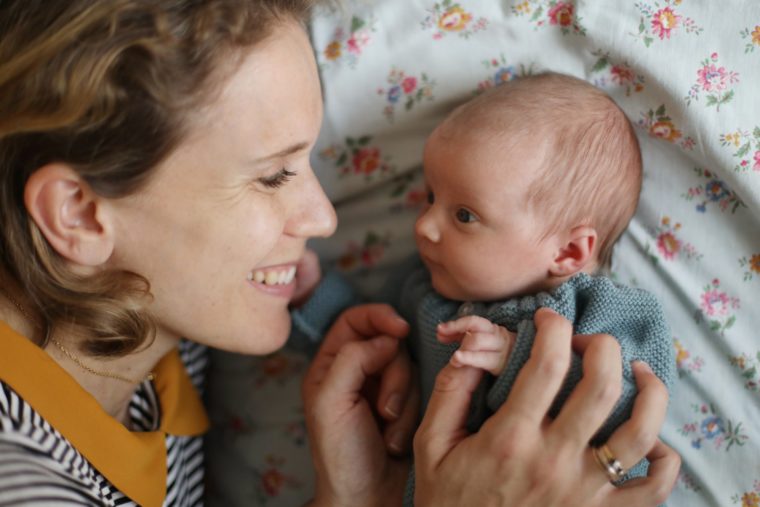You prepared for the arrival of your baby for months. Now that they’re finally here, what’s next? We answer your common (and not so common!) parenting and development questions.
Your child’s early years are full of nonstop learning–not only for your little one, but also for you.
Many of the things we learn as humans we learn naturally by following our instincts. Although your child will develop on their own, there are definitely ways in which parents can help their child make the most out of these early years. We know more about early childhood development now than we ever have and are able to pinpoint the ways in which parenting intervention can help children get the best start to life.
In this article, you’ll find expert care advice for babies, from newborn basics to developmental tips.
How can I take care of my baby?
It might seem like a simple question, but there’s a lot to keep track of and do! There’s the basics–like feeding and diaper changing–but monitoring and supporting your child’s developmental journey starts on day 1.
Read on for expert care advice for babies.
My baby’s first movements
Early on, you’ll notice small, subtle behaviors–like closing and opening palms or reacting to the sound of your voice Although these behaviors may seem insignificant, they are the building blocks for your child’s future physical, cognitive, and social development.
Download Kinedu for FREE and track your baby’s development and progress!
The more your baby spends time with you, watching your movements and getting to know you, the more they will learn about the world. One way to actively promote developmentally friendly parent-child interactions is through massage. This might sound surprising, but the skin-on-skin contact stimulates your baby’s senses and promotes bonding.
You can also try showing your baby objects and encouraging them to follow the object’s movement with their eyes. Little games like this, which may seem insignificant, are a great way to support your baby’s development.
My baby’s first teeth
Teething can be a challenging time for parents: you see your baby in pain and you don’t know what to do. This is a totally normal stage of development and it will pass! In the meantime, there are several things you can do to ease your baby’s pain.
One of them is to offer your baby a cold object to chew on. No need to get anything fancy–simply put a damp towel in the refrigerator for a few minutes and voilá. If your baby is already eating solids, you can also try giving them a piece of cold fruit, like a frozen banana. Massaging your baby’s gums is another great way of reducing their pain and discomfort!
However, remember that if your child has a fever accompanied by gum pain, talk to your pediatrician.
My baby’s sleep
When your baby sleeps, their body recovers and prepares for a new day full of discoveries. That’s why sleep is so important for your child–it’s key to a healthy development. Not to mention your own sanity and health!
The recommended hours of sleep for a baby from 0 to 3 months is 14 to 17 hours a day. However, some babies can sleep up to 19 hours while others only sleep 11. If you notice that your baby does not sleep enough or sleeps too much, talk with your pediatrician.
Between 4 and 6 months, pediatricians recommend starting to introduce sleep routines, since this is the age children where children are finally ready to learn new habits. A routine can begin with a relaxing bath, a song, or a story–whatever works best for you and your baby. Quiet activities help your baby wind down and get ready for a good night’s sleep.
How can I support my baby’s development?
Babies are like sponges: they absorb all the stimuli you give them.
To support your baby’s development, try a lot of different activities and see what sticks! The more variety, the better. Not only for your baby’s learning, but also because every time you try a new activity you and your baby bond and learn more about one another.
Download Kinedu for FREE and get access to 1,800+ activities to support your baby’s development!
One idea for stimulating your baby’s visual development is showing your baby colorful objects and see if they follow the object with their eyes as you move it around. You should also try and speak to your baby. Even if they don’t understand you, this is a great way to build the foundation for future linguistic skills.
To take care of your baby, you don’t need to give them tons of toys to stimulate their development. The time you spend together daily will be enough for them to grow up healthy and happy.
For more expert care advice for babies, download our app.








